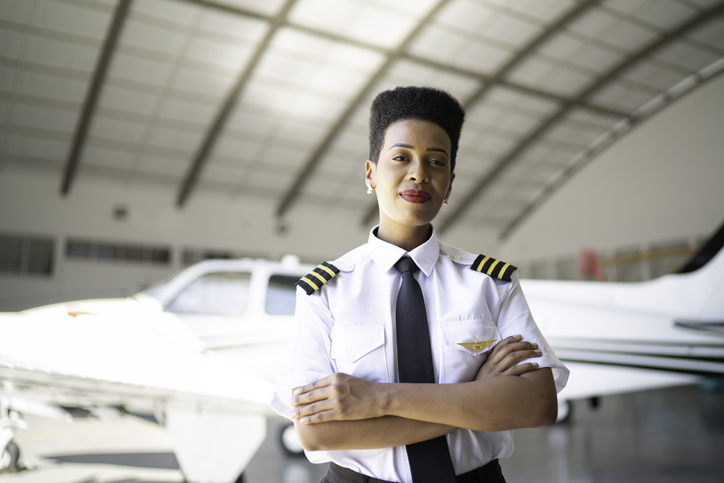Airlines are scrambling to get hundreds of pilots trained and hired to meet the high demand of summer travel. US-based Piedmont Airlines announced it would offer over $180,000 in bonuses as part of the company’s recruitment and retention package.
As Travel Noire reported recently, social media went crazy when it was announced that some airlines were paying up to $247/hour to combat pilot shortage.
In an agreement between Piedmont Airlines and The Air Line Pilots Association, International (ALPA), the largest airline pilot union in the world, the announcement offers pilots increased stability in an industry rocked by uncertainty over the past 18 months.
“Piedmont is making an enormous investment in our business and our pilot group,” said Piedmont CEO Eric Morgan in a release. “This is an important step in building a post pandemic, sustainable airline that can thrive well into the future.”
According to the airline company, new hire pilots will receive a $15,000 signing bonus. Pilots with 750 hours of Part 121 experience can earn an additional $10,000 and pilots with an Embraer 145 type rating can add another $7,500. The new hire bonuses enhance Piedmont’s top tier pay and benefits.
Piedmont Airlines specified its program is designed for all new hires and existing pilots.
Called the “Elevate Pilot Careers” program, the program will pay existing captains $30,000 for their commitment to Piedmont and existing First Officers will have the same opportunity to receive $30,000 upon upgrading to captain.
All Piedmont pilots will receive an additional $70,000 when they flow to American and up to $50,000 more earned pro rata with qualifying hours over a two-year period.
As Piedmont stated, this airline was one of the few airlines that did not furlough pilots during the COVID-19 crisis.
“In fact, we were tapped by American to expand flying into new markets, including Chicago,” the company said.
Piedmont plans to announce an updated cadet program for pilots and is testing an aircraft maintenance training program for aspiring mechanics.
“The key to building a sustainable airline is securing our skilled workforce, creating policies that will help our team members navigate the pandemic and accepting that our new reality is much different in a post-COVID world,” added Morgan. “Piedmont’s secret weapon has always been the ability to adapt and move forward, and that’s what we’re doing.”
Some airlines companies announced cancellations of thousands of flights throughout July 2021 as a result of the shortage, according to CNN.
Airlines have received $54 billion in federal aid since March 2020 in exchange for not laying off workers, Reuters reported. But voluntary departures, changed fleets and the rapid rise in travel demand have created a need for pilot training that industry experts say is unprecedented in the history of the airline industry.





